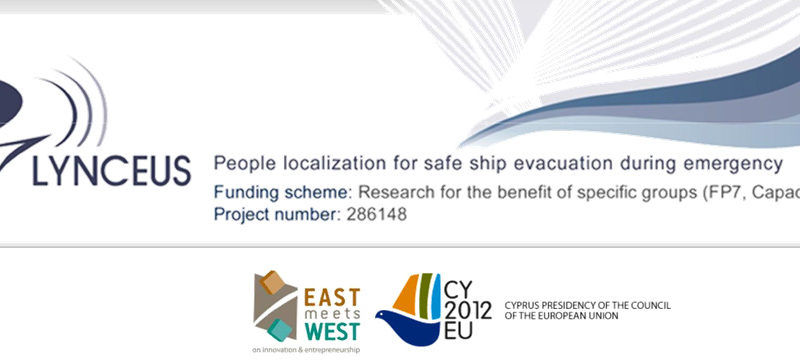A Real Maritime Industry Need
Despite the huge investment in maritime technology today, there are still many deaths accounted in accidents involving ships, due to the inability of current technology to identify the exact position of people when onboard during the evacuation procedure or when in the sea.
The Lynceus technology aims to fill this industry need by providing low cost and robust innovative technology for localising each individual to be rescued onboard or in the sea, thus maximising the probability of safe rescue and minimising loss of life.
MS Costa Concordia
- The ship was carrying 3,229 passengers and 1,023 crew members
- All but 34 were rescued
- As of 22 March 2012, 32 bodies had been found, with two people known to be missing
- The two people unaccounted for are presumed dead
- The search for bodies was abandoned at the end of January
Project Idea
The objective of the Lynceus project is to investigate and demonstrate ultra-low power wireless body-area-network technologies for enabling unobtrusive localisation and tracking of people for onboard and overboard search and rescue as well as for safe evacuation of ships during emergency.
The Lynceus novel technology will be transferred into the SME-driven market segments of smoke alarm/fire detection systems, lifesaving equipment, emergency management decision support systems and assistive search and rescue equipment through the participation of SME and SME Associations.
Project Overview
Start date: April 2012
Duration:36 months
Project Reference:286148
Project cost: 3.3MEURO
Project Funding: 2.5M EURO
Programme Area: Research for SME associations (FP7)
Consortium:
Fifteen partners from 8 Countries
| Four SME Associations: | Four SMEs: |
| FORO (ES) | CAMPI (IT) |
| ATEVAL (ES) | SFM (IT) |
| SEPVE (GR) | GGD (CY) |
| ETEK (CY) | OPTIONS (GR) |
| Four RTD Performers: Two Large Companies | |
| SG (CY) | LOUIS (GR) |
| LLOYDS (UK) | |
| CSEM (CH) |
| TUD (GER) | Project Coordinator |
| MARINEM (CY) | TALOS (CY) |

